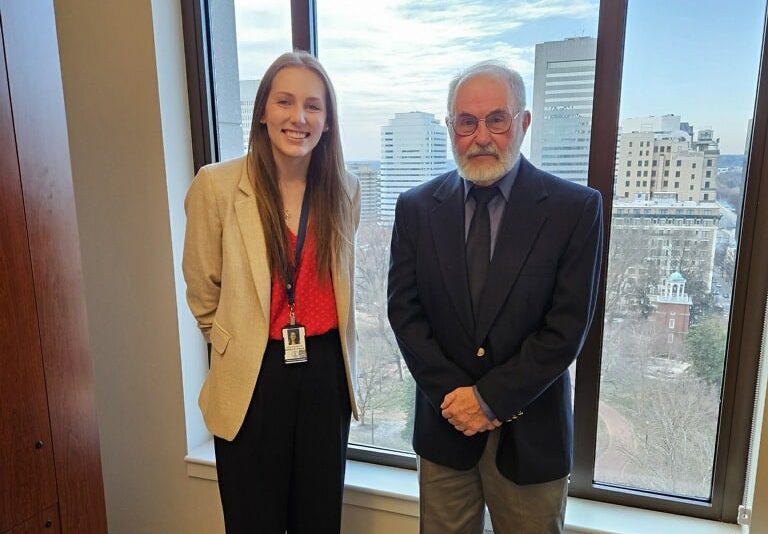Ag-Ventures: Appalachian Sustainable Development
Their motto: from field to table. In the case of agricultural work, this means the food that goes on the table. For the logging and forestry portion of the enterprise, it means the table itself.
Appalachian Sustainable Development first came together in 1995 to address the question of jobs versus environment, and the solutions that have evolved over the years have been pretty much the same for landowners and loggers as for farmers and markets.
Now ASD owns and operates a sawmill and lumber yard that adhere to sustainable practices. The organization also works closely with a network of organic farmers that, among other things, contributes to the booming success of Abingdon Farmers Market in Southwest Virginia.
Barbara Kingsolver, the internationally famous author of Animal, Vegetable, Miracle, is on ASD’s board of directors, as is her collaborator and husband Steven L. Hopp. But the main driving force behind the Abingdon-based nonprofit 501(c)3 is Anthony Flaccavento.
“We gathered environmental activists and some community activists together with more traditional economic development people, chambers of commerce, and a few entrepreneurs and friends,” Flaccavento said, “and we basically for about a year grappled with the question: can we create an economy that’s good for people and good for the environment at the same time —i n fact better for people and better for the environment – than we’re getting on either end now. Because we looked around and said the environmentalists have been fighting the economic developers and vice versa for years and look what we have: high unemployment, high underemployment, high poverty rates and a host of environmental problems.”
At that time the notion of sustainable development was just emerging as a concept and did not represent any set standard of economic or environmental practices. Those debating the relevant points were almost entirely intellectual, abstract, academic kinds of groups. The ASD pioneers wanted actually to do something.
“Our consistent focus has been in two economic sectors—farming and forest products,” he said. “Our approach in both of them is what we refer to as a field-to-table strategy, meaning that we quite literally work in the fields, farms or forests, with technical assistance, with education, with the latest research on organic farming or grass-finished livestock or sustainable forest management.”
In the case of forestry a set of standards was developed with the help of professional foresters and The Nature Conservancy, “some of the most rigorous standards around for managing forests and yet harvesting wood.”
Those standards preclude not only clear-cutting but also what’s called high grading, which means taking only the best quality trees. “That has been done a lot in our woods,” Flaccavento said. “It’s been done more than clear cutting.”
The standards restrict a wide riparian zone around streams so that logging operations don’t create siltation. They also consider wildlife habitat and any critical ecological features like sink holes and caves. “But more than that the standards look at what will be left when we’re done.”
Finding careful loggers to obey those rules has not been easy. “Essentially for the loggers we’re saying take out less wood, leave more of the good stuff, and exercise a whole lot more care in the process.” But, he said, a small core of them is willing to do it, and for that they are paid more. “We pay about 25 percent more on average for the logs they bring in.”
The logs are brought to ASD’s Sustainable Woods processing center in Castlewood, Russell County, Virginia, where the company operates two dry kilns. One is a solar and wood-based kiln and the other is strictly wood-based, so that both operate from the waste products generated by the saw mill.
Ultimately kiln-dried boards are made into hardwood flooring, furniture, cabinetry, ceiling panels, wainscoting, “pretty much any wood you would see. We don’t do two-by-fours or plywood.”
The most ravenous customers are contractors, architectural firms and individuals who wish to be associated with the “green” building movement.
Within the building industry a program called LEED—Leadership in Energy and Environmental Design—grants certifications to those who build or renovate in the most environmentally responsible way, taking into consideration such things as energy use, lighting, water utilization, and off-site damage from the building process.
“And one of the categories in LEED is where did your materials come from and how were they made,” Flaccavento said. “So they get points when they use our wood.”
It’s been tough creating that market, however, and ASD still has to cast a wide net to find customers as far away as Asheville and Charlottesville. Staying local is the emphasis of the effort—also the focus of Kingsolver’s widely acclaimed bestseller—and ultimately he’d like to stop trucking wood products over hundreds of highway miles.
“Within a few years we hope to sell all our wood in a 100-mile radius,” he said, and that goal is most emphatically shared with the agricultural arm of the enterprise.
For more than a decade ASD has worked primarily with former tobacco farmers to provide training and one-on-one technical assistance in the transition to organic produce and free-range eggs. “Those are the two things right now, and we then own and operate a packing facility where all the produce and eggs come in.”
The brand name is Appalachian Harvest, the products are certified organic, and three refrigerated delivery trucks haul to several major supermarket chains both locally and regionally—Ingles, Whole Foods, Earth Fare and Food City, to name just a few. “When we explored the purely local markets, what we determined was if we were purists about it and only sold in a 100-mile radius, there is no way we could generate enough market to create the incentives for these tobacco farmers to transition,” he said. “They didn’t want to grow a few rows of arugula. They wanted to put out a couple acres of bell peppers. That’s the way they’re used to.”
On the retail level ASD has helped the Abingdon Farmers Market grow from seven or eight vendors to arguably the region’s finest farmers market. “It’s an amazing market. It has about 34 or 35 vendors on a Saturday morning, and for a town of 8,000 that’s great.”
Here again it was an uphill struggle to attract both vendors and customers. “Farmers don’t want to come out to something if there’s not much of a customer base, so you have farmers waiting on the customers and customers waiting on the farmers. We went about simultaneously actively recruiting farmers, especially some organic ones because we knew there was a growing consumer interest in that, and then actively recruiting customers. We did special events, we did promotions in the media, and we did flyers.”
With the market showing increased attendance over several years, the town built a permanent facility. “And that made it all the better. The customers were thrilled that it was semi-enclosed and the farmers loved being out of the sun.”
No doubt the small farmer is being squeezed out of existence, as costs increase but prices for their products do not. “Their view of environmentalists and health advocates has historically been very negative because they feel like we’re asking them to do it for a price that they can’t do it. And so what we’re saying is they’re right. We’ve got to pay them if we want them to be good stewards.”
Despite higher prices to the consumer, he predicts that both brands, Sustainble Woods and Appalachian Harvest, will soon operate in the black. “They will actually be net generators of income for us to help fund our training and our education.”
As to whether or not they will achieve their goal of becoming truly local—well, that’s not only debatable, it’s a relative term “Even when we go all the way up to the Whole Foods in Landover, Maryland, and we travel close to 400 miles, compare that to where they’re getting most of their organic product. It’s southern California. So relatively speaking we are greatly reducing the food mile footprint and we’ll just keep working to do that more and more.”
ASD owes its success to offering people from all walks of life something they can appreciate. “If you’re sort of a conservative Republican what you relate to is the self-help dimension, helping the family farmer, the entrepreneurial component. If you’re kind of a liberal progressive it’s the environmental values; it’s the social justice thing. And it all kind of comes together in that way.”
Visit the web site at asdevelop.org.
Related Articles
Latest News

Leave a comment
Your email address will not be published. Required fields are marked *





Leave a Comment